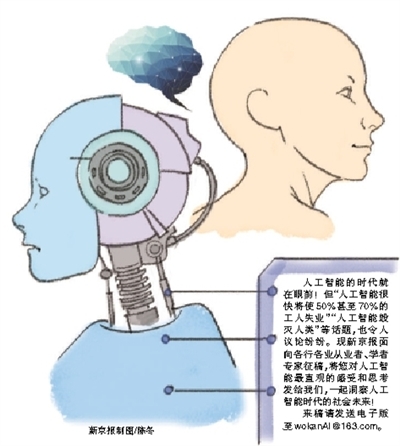(Original title: Artificial intelligence does not subvert the lawyers industry) I often tell law students that you have chosen a very good professional. The law is more and more important, and the more experienced the legal worker, the more valuable. This means that legal workers can neither be eliminated by the times nor devalued by old age. Now that artificial intelligence has come, it has not changed my view. Artificial intelligence is bound to change, but it will not subvert the legal profession. I have designed a research project that attempts to use more than 30 different indicators to sum up the characteristics of a particular type of case, and then collect a large number of similar cases. Through quantitative analysis, I study the impact of these different indicators on the outcome of case handling. When designing this research, I was full of confidence. After concluding that similar and similar cases of the same kind, after summarizing them with comprehensive and meticulous indicators, we should be able to find regular conclusions, enough to design a decision support system to help people deal with future similar cases. . When I collected dozens of similar cases from the fields and planned to analyze according to pre-set indicators, I quickly encountered serious setbacks. Although from the perspective of the case, it is the same type of case, but in reality, every case is very different. The factors that determine the final outcome of each case are also very different and even impossible to say. This research idea was quickly shelved and replaced with a case study. The core of artificial intelligence is summarized based on existing experience. It is difficult to make creative judgments on new issues and new situations. Even artificial intelligence may be creatively judged for some problems. However, these problems are essentially logical or game-like problems. Mathematical analysis can be performed and they all ultimately come down to mathematical problems. Artificial intelligence does not "create" answers to such questions, but only "discovers" answers. In a certain sense, legal judgment is a bit like a historical mirror. History is undoubtedly empirical, but it is impossible to completely rely on historical experience or completely abandon historical experience in order to judge the future. Taking history alone as a mirror will only stagnate history; if it is completely separated from history, there will be a serious transition crisis. All laws and cases constitute the background of the historical experience of lawyers when handling cases. However, for a good lawyer, every new case at the moment is futuristic and timeless. It is not limited to and trapped in the experience of law. . In fact, this capability of handling cases that proceed from historical experience and creative breakthroughs is the core driving force for legal evolution. Just a few days ago, the former Soviet military officer Petrov passed away. He is a man who may have changed the fate of the world. In 1983, Petrov as commander of the missile attack early warning system commander, faced with a computer screen warning that several intercontinental missiles were coming, and did not initiate a retaliatory nuclear attack in accordance with the plan, but judged that it might be a computer failure. The resulting false signal. This is a typical logic-based "If ... ..." judgment, and it is impossible to know why Petrov has assumed a false signal, but his influence may include empirical judgment as to whether the United States will suddenly launch a nuclear attack. Including whether he wants to allow a devastating war to have a subjective willingness to erupt, it also includes his courage to violate the established plan and dare to violate conventional rules. This ability to make creative judgments, from the perspective of my knowledge, is hard to do with artificial intelligence. A good lawyer is actually a lawyer who has the ability to make creative judgments. There are no two identical cases and there are no two identical case-handling situations. In addition to the logic that can be calculated and the experiences that can be generalized, perseverance, belief, imagination, and expressiveness can all be factors that influence the outcome of the case. These factors can only be achieved by a carbon-based lawyer, and the silicon-based lawyer always has only cold calculations and induction. Although artificial intelligence will not subvert the lawyers' profession, it may have a serious impact on the legal profession. But such an attack is not necessarily a bad thing. Artificial intelligence will share some non-creative legal work and allow lawyers to focus more on "creating" the answer. Therefore, artificial intelligence will not eliminate lawyers; it will only eliminate underperforming lawyers. Ye Zhusheng (Lecturer, practicing lawyer, School of Law, South China University of Technology) Electrical Meter Sockets,LCD Power Meter Socket,Digital Power Meter Socket,Power Meter Plug Socket NINGBO COWELL ELECTRONICS & TECHNOLOGY CO., LTD , https://www.cowellsockets.com